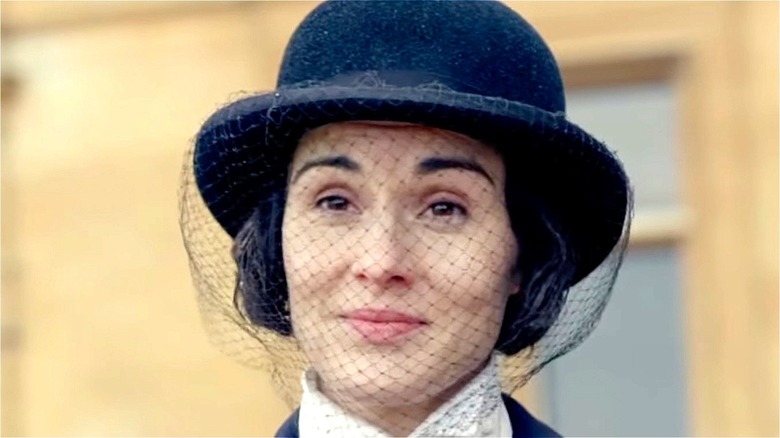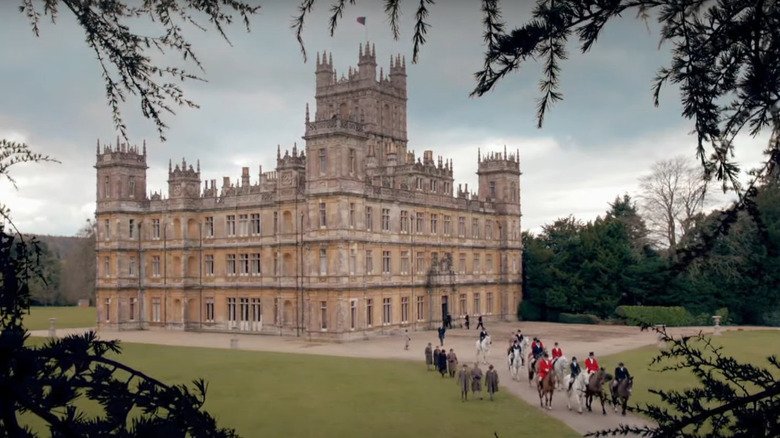Is Downton Abbey Based On A True Story?
"Downton Abbey" has been one of the most successful shows of the past few years, as the story of the Crawley family and their servants in 1910s and 1920s England captured viewers of all stripes who remained invested in the show despite some questionable storytelling decisions. The series, which starred a sprawling cast that included Hugh Bonneville, Michelle Dockery, Dan Stevens, Lily James, and Dame Maggie Smith, ran from 2010 to 2015. That was not the end of the series, however, as it also returned in a film continuation in 2019, with a second film, titled "Downton Abbey: A New Era," subsequently announced.
Viewers of the show and its movie continuation still have lingering questions about the series, both pertaining to the story it tells, and about the show at large. Some of the major questions have revolved around what inspired the show, and whether it is based on a true story or not.
Julian Fellowes was a deliberate choice to tell this story
"Downton Abbey" is not based on a true story, though it did get historical facts right quite a few times. Executive producer Gareth Neame, in an interview with Vanity Fair, said that he had come up with the original idea for a series set in a country house, deeming it to be a location rich enough in storytelling possibilities to carry the weight of a TV show. Neame then proceeded to approach Julian Fellowes with the idea, given how Fellowes penned the 2001 film "Gosford Park."
"Gosford Park," which is directed by Robert Altman, is set in 1932, and it revolves around an industrialist named Sir William McCordle, played by Michael Gambon. McCordle invites a group of people to his country estate, all of whom arrive with their own servants. The mingling of these groups proves to be volatile both upstairs and downstairs, and Sir McCordle is eventually murdered, leaving a house full of suspects.
According to Neame, however, Fellowes wasn't on board at first. "Julian was very, very wary of returning to the territory of 'Gosford Park' when I first approached him, because it had been such a turning point," Neame said, referring to the Oscar that Fellowes won for his work on "Gosford Park."
However, Neame convinced Fellowes to think on the idea, and a few weeks later, Fellowes gave Neame a comprehensive idea of how the first season would go.

